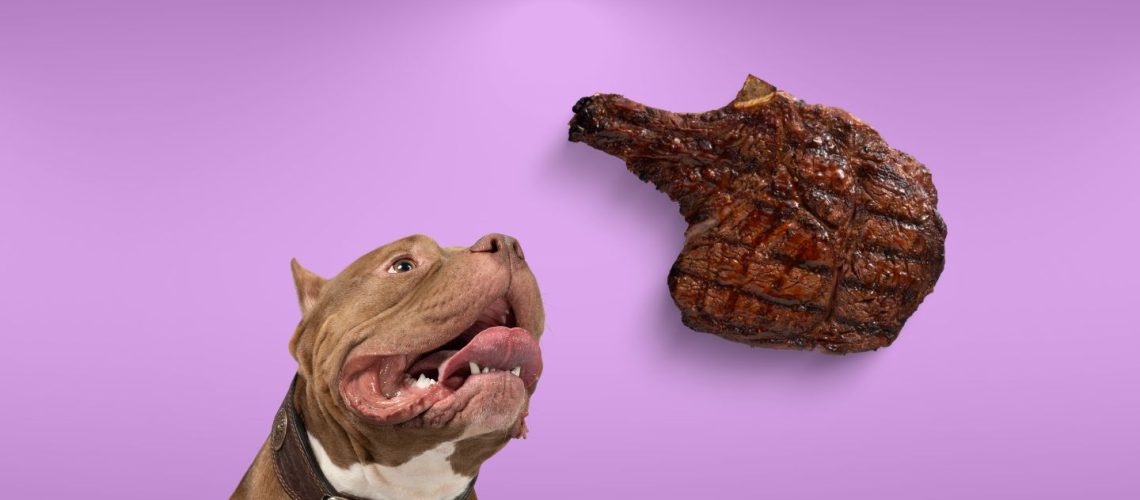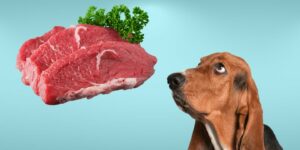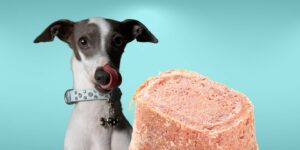Yes, dogs can eat steak. In fact, steak can be a healthy part of a dog's diet. However, it's important to feed plain and well-cooked steak to your dog.
The Nutritional Value of Steak for Dogs
Steak is a good source of protein for dogs. Protein is essential for maintaining healthy muscles, organs, and immune systems. In addition to protein, steak is rich in vitamins and minerals, such as iron, which is necessary for maintaining healthy red blood cells and transporting oxygen throughout the body. Moreover, steak contains fatty acids, which can provide additional health benefits.
Protein Content and Its Importance
Protein is the foundation for building and repairing muscle tissue in dogs. It helps maintain a healthy immune system and supports the functioning of various organs, such as the liver and pancreas.
Vitamins and Minerals in Steak
Steak is a good source of essential vitamins and minerals, including iron, phosphorus, and zinc. These nutrients are crucial for maintaining various bodily functions, such as blood circulation and bone health.
Fatty Acids and Their Benefits
Steak contains fatty acids, which can help maintain healthy skin and coat, reduce inflammation, and support cognitive function in dogs.
Potential Risks of Feeding Steak to Your Dog
While steak can be beneficial to your dog's health, there are several potential risks associated with it, such as bacterial and parasitic infections, choking hazards, pancreatitis from high-fat content, and allergies or food sensitivities.
Bacteria and Parasites in Raw or Undercooked Steak
Raw or undercooked steak may contain bacteria and parasites that can cause illness in your dog. To minimize this risk, always provide well-cooked steak.
Choking Hazards: Bones and Gristle
Bones and gristle can pose choking hazards, so always remove them before feeding the steak to your dog.
Pancreatitis from High-Fat Content
A high-fat diet may increase the risk of pancreatitis, so opt for lean cuts of steak and avoid frying the meat.
Allergies or Food Sensitivities
Some dogs may have allergies or sensitivities to certain foods, including steak. Monitor your dog for any signs of an adverse reaction after introducing steak into their diet.
Preparing Steak for Your Dog: Tips and Tricks
Choosing the Right Cut of Steak
Opt for lean cuts of steak, such as sirloin, flank, or round steak to minimize the fat content.
Cooking Methods: Boiling, Baking, or Grilling
Boil or bake the steak to keep it as healthy as possible for your dog. Grilling is another option, but be cautious of any charred bits that could be harmful.
Removing Bones and Excess Fat
Before serving steak to your dog, remove all bones and trim any excess fat.
Avoiding Seasonings and Marinades
Seasonings and marinades might contain ingredients that could be harmful to your dog. Feed your dog plain, unseasoned steak.
Serving Steak to Your Dog: Frequency and Portion Sizes
When to Serve Steak as a Treat or Meal
Steak can be served as an occasional treat or as part of a meal when combined with other foods, such as vegetables and grains.
Determining the Right Portion Size
The ideal portion size of steak will depend on factors like your dog's size, age, and activity level. Consult your veterinarian for personalized advice.
Balancing Steak with Other Dietary Needs
Ensure your dog's diet is balanced by providing a mix of proteins, carbohydrates, and vegetables.
Monitoring Your Dog's Reaction to New Food
Keep an eye on your dog after introducing steak into their diet and watch for any signs of discomfort or digestive issues.
Alternatives to Steak for a Protein Boost
Other Meats: Chicken, Turkey, and Fish
Chicken, turkey, and fish are other healthy protein options for dogs.
Plant-Based Protein Options
Consider plant-based protein sources like beans, lentils, and quinoa if your dog has a meat allergy or you'd like to offer them a more diverse diet.
Commercial Dog Food with High Protein Content
High-quality commercial dog food can also provide your dog with the necessary protein they need.
Frequently Asked Questions: Dogs and Steak
Can Dogs Eat Raw Steak?
Feeding raw steak to dogs is not recommended due to the risk of bacteria and parasites.
Are Certain Cuts of Steak Better for Dogs?
Lean cuts like sirloin, flank, or round steak are the best options for dogs due to their lower fat content.
Can Dogs Eat Cooked Bones from Steak?
No. Cooked bones can splinter, which can cause choking hazards or internal injuries.
What Should I Do if My Dog Eats a Steak with Seasoning or Sauce?
Consult your veterinarian if your dog consumes a seasoned or sauced steak as some ingredients could be harmful.
Conclusion: The Verdict on Steak for Dogs
In conclusion, dogs can eat steak, and it can be a healthy addition to their diet. It's crucial to provide well-cooked, plain, lean steak and adjust portion sizes according to your dog's specific needs. As always, speak to your veterinarian before making any changes to your dog's diet.











